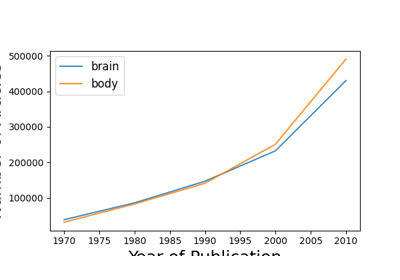lisc.collect_across_time¶
- lisc.collect_across_time(obj, years, **collect_kwargs)[source]¶
Collect data across time epochs.
- Parameters:
- objCounts1D, Counts, Words
Object to collect data with.
- yearslist of int
Years to collect literature for.
- **collect_kwargs
Additional keyword arguments to pass into the collect function.
- Returns:
- resultsdict
Results collected across time. Each key reflects the start year, and each value is a object with search results.
Notes
Time regions are defined as the set of regions {start of years[n] to end of years[n]-1}.
For example, for years = [1990, 1995, 2000], this would search for:
01/01/1990 to 12/31/1994
01/01/1995 to 12/31/1990
Similarly, for years = [2000, 2001, 2002, 2003], this would search for:
01/01/2000 to 12/31/2000
01/01/2001 to 12/31/2001
01/01/2002 to 12/31/2002
Note that this means that final element in years is not included in the search. Also, this function only currently supports contiguous, whole year search times.
Examples
Collect counts for a single set of search terms, across time:
>>> from lisc.objects.counts import Counts1D >>> counts = Counts1D() >>> counts.add_terms([['frontal lobe'], ['temporal lobe']]) >>> years = [1950, 1975, 2000] >>> results = collect_across_time(counts, years)
